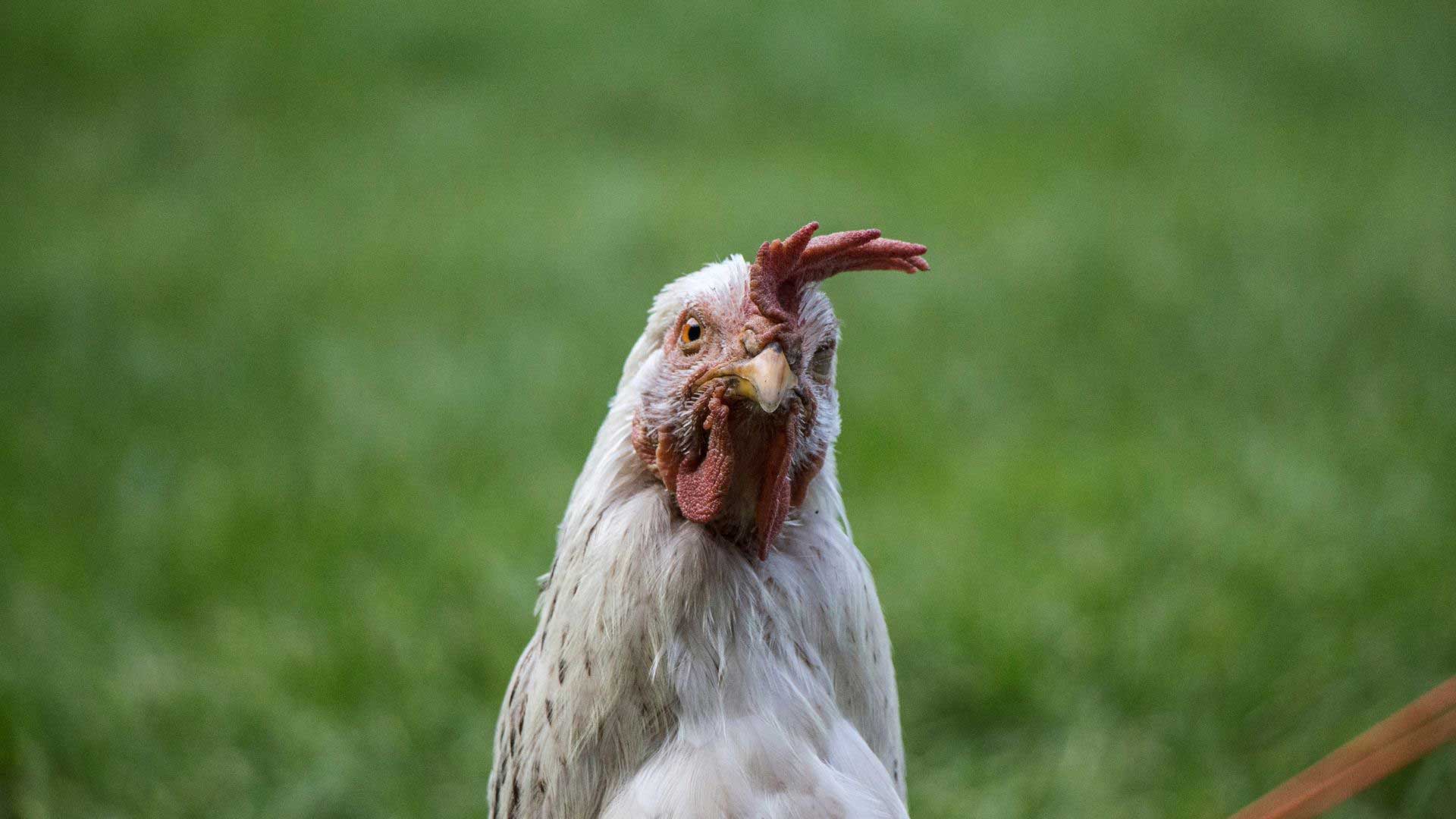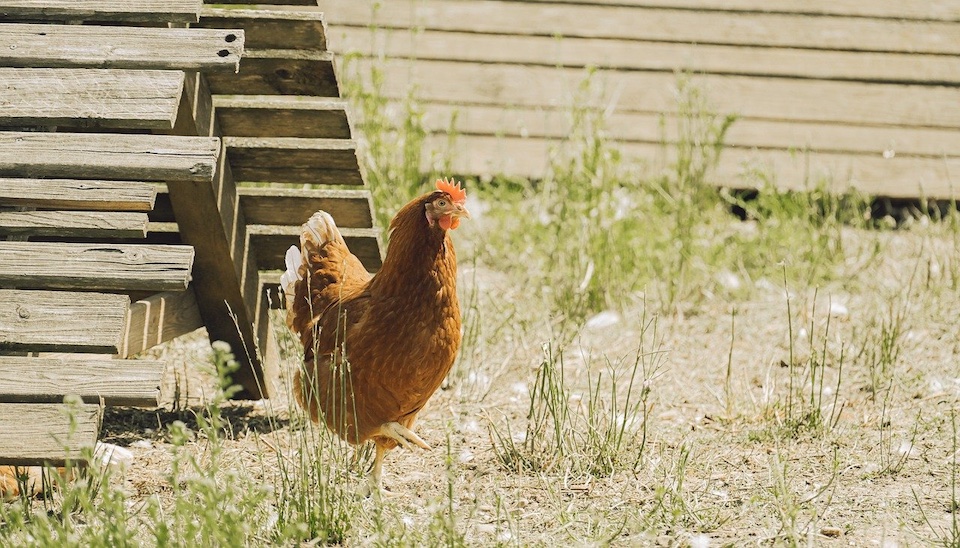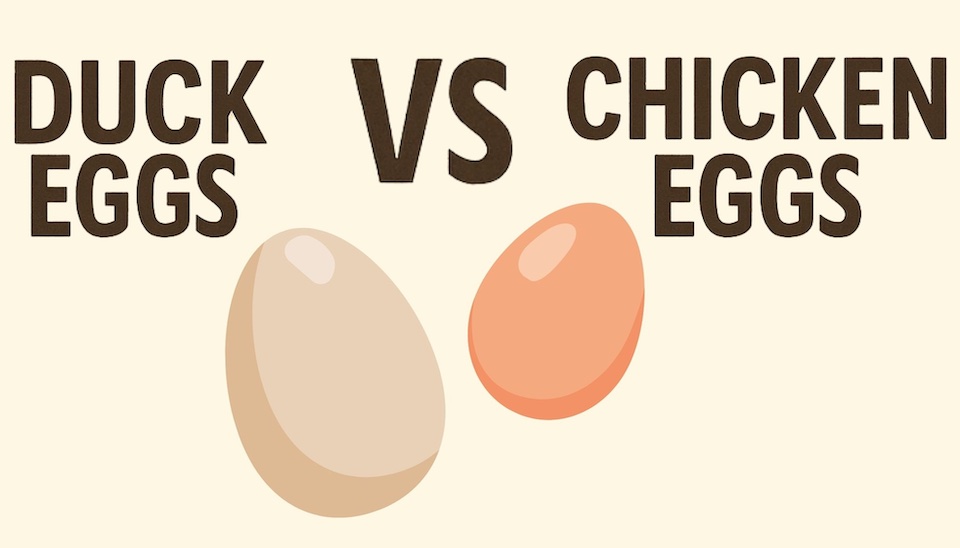Does my Chicken have a Vitamin or Mineral Deficiency?
Does my Chicken have a Vitamin or Mineral Deficiency?
Keeping your backyard chickens healthy needn't be an overwhelming operation. However, it is important to understand the role of vitamins and minerals in your birds' diet. Below we describe the signs and symptoms of deficiencies, but further to this you need to understand that even a slight deficiency can quickly lead to a reduction in disease resistance and increase ill-health.
If your chickens have a deficiency, they are probably lacking more than just one vitamin or mineral. Chicken feed is usually supplemented with the vitamins and minerals a chicken needs to thrive, often as a pellet or powder. Unless your chicken has an underlying health issue, a deficiency indicates that they are not getting what they need from their diet.
If you are using a complete pelleted feed and aren't feeding your birds too many scraps, deficiency is most often caused by worms. But if you are using a grain mix style feed, even if it is a complete feed, selective feeding is usually the cause of a deficiency.
If your chickens are selectively feeding, and not consuming the vitamin and mineral component in the feed, they are likely to be deficient in more than one nutrient. This is one of the most common causes of deficiencies in chickens.
Not only is it important for your chickens to receive adequate vitamins and minerals, they should also be supplied in the correct ratio. Ultimately, if you want healthy chickens who lay tasty eggs for your morning breakfast, then it's important to take note of their vitamin intake.
Signs of Vitamin and Mineral Deficiency in Chickens
Each vitamin and mineral is vital to different bodily functions. For instance, Vitamin B is essential for the health of the chicken's nervous system; it is not normally stored in the body so your hens must consume it regularly for normal nerve function.
The signs of vitamin and mineral deficiency in chickens can also be caused by illness, parasites or even just a stomach upset. But if these symptoms are becoming a regular pattern, or several symptoms are combined, then they should be investigated.
Signs of vitamin and mineral deficiency in chickens:
- General ill-health
- Poor or reduced egg production
- Stunted or slow growth
- Reduced appetite or poor feed conversion
- Weight loss
- Sparse feathers (often a B12 deficiency) or poor feather condition
- Weakness
- Lethargy
- Watery eye discharge or crusted eyes
- Poor egg shell quality, including thin-shelled eggs (usually a calcium or vitamin D3 deficiency)
- Leg weakness, especially in chicks
- Nervous disorders (poor balance, involuntary movement)
- Diarrhea
- Curled toes
- Rickets
- Excessive bleeding or bruising from minor injuries
- Reduced immunity to parasites and disease
Many of these symptoms can be caused by various different vitamin or mineral deficiencies. Therefore, it is usually easier to provide a broad vitamin and mineral supplement such as Mega Mineral or Liquid Vitamins. If the general supplement doesn't work, then you need to look into diagnosing the exact deficiency.
Causes of Vitamin Deficiencies in Hens
Without a doubt, chickens are very much like toddlers: picky eaters with poor table manners. Chickens are notoriously selective eaters, casting aside tasty pieces of food to only eat small morsels that will satisfy their fussy taste buds.
This particular behaviour can ultimately lead to a series of symptoms that herald major vitamin and mineral deficiency. It is also the reason why we do not recommend any feed that allows your hens to be selective.
Scratch mixes or grain mixes are a common chicken feed comprised of seeds, corn and other grains, which are high in fibre but not nutrients. Many scratch mixes also contain a pelleted or powdered vitamin and mineral supplement which means they can be marketed as "complete" feeds. But because of the variation in the feed, chickens are encouraged to develop selective eating and only gobble what they want, not what their body needs. If you've ever noticed a particular type of seed or grain left in the bottom of the feeder, this means your chickens are selectively feeding and are not getting the vitamins and minerals they need stay healthy.
Excessive kitchen scraps or parasites may also cause your chickens to develop a vitamin or mineral deficiency, as can using old or spoiled feed. But the most common cause is selective feeding, usually with a scratch-mix style feed.
Parasites Cause Vitamin Deficiencies in Chickens
Backyard chicken coops can become a breeding ground for different external and internal parasites. Internal parasites like worms and coccidia attack the intestinal tract, disrupting the absorption of vital nutrients needed for egg production and bodily functions.
Parasites spread easily within the coop, quickly infecting your entire flock. For more information on identifying and treating parasites, visit our blog.
How to Fix a Vitamin and Mineral Deficiency
We recommend a few methods to ensure your chicken's nutritional requirements are met:
- Pelleted Feed - A complete pelleted feed will include a spectrum of vitamins and minerals and it will also remove any possibility of selective feeding. By reducing waste, a pelleted feed will also save you money!
- Vitamin and Mineral Supplement - A supplement can be used to treat and prevent deficiencies. A low-dose supplement such as Mega Mineral can be added to the water supply regularly as a supplement to any diet, even a complete one! And a higher-dose supplement like Liquid Vitamins is perfect for treating a deficiency.
- Treat Parasites - Treat parasites fast and organise a regular preventative treatment to keep your birds free from internal worms
Happy chicken keeping!
Jennifer at Dine a Chook Australia



